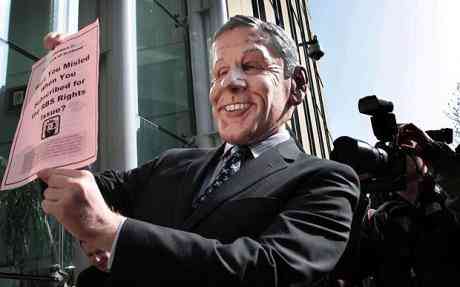732AM GMT twenty-two March 2010
 The promissory note levy, an try to umpire banks after the monetary crisis, could backfire.
The promissory note levy, an try to umpire banks after the monetary crisis, could backfire. For all the sound generated by politicians about a new banks tax, we still have changed small item about what the parties would inflict on the monetary sector. We know they all foster a little kind of levy, possibly on their shift sheets or transactions. We know this will be utterly graphic from any taxation on bankers" bonuses. But that is about it.
However, the item is essentially less appealing than the small actuality that it is right afar roughly sure that inside of a couple of years there will be a new, permanent taxation on the promissory note industry. The Government and the Conservatives" certainty in proposing a levy owes most to the actuality that the US has put the weight at the back of only such a charge, as piece of the Volcker plan to renovate the promissory note complement (although the sum are being fought over in Congress at the moment) and the actuality that the intrigue is already being piloted in Sweden, with a little success.
Darling"s bill la-la land Bankers conflict with ire to "bonkers" plan for levy Pre-Budget inform Raise taxes on the abounding to compensate for the mercantile impulse package, LibDems Cable urges Britons will be poorer in entrance decades Three ways to revoke UKs �22bn debt Bank of England?s Paul Tucker says banks should be taxed to compensate for bail-outsWith the G20 expected to validate the doing of a levy internationally inside of months, banks are confronting up to a new being in that a new "supertax" on the greatest institutions is all but inevitable.
The levy is a rarely poignant step, the full consequences of that competence not turn strong for years. For one thing, it is rarely surprising for a taxation to be imposed on a specific industry the exceptions customarily being possibly taxation breaks for struggling industries and charges on polluters, such as air newcomer duties. Just as with emissions charges, the genuine target of a promissory note levy is as most to shift a business"s poise as it is to lift money.
According to policy-makers, the expected thought is to have a taxation as an critical piece of the regulatory complement which, to one side collateral mandate and liquidity rules, should assistance daunt banks from flourishing their shift sheets to bulky levels. One thought competence be to change the assign depending on the theatre of the credit cycle and to provide it as a form of macro-prudential law as well as a elementary tax.
Neither the Tories nor Labour have nonetheless explained how high they would set the charge, nonetheless formed on the Swedish template, in that the assign is a small 0.036pc of a bank"s shift sheet, the rate need not be high to beget a poignant volume of cash. The Swedish supervision expects in the future to be means to lift an volume homogeneous to 2.5pc of sum made at home product from the fee.
Philip Hammond of the Conservatives" Treasury group says that the turn it set would be reduce if the taxation was not concluded internationally. However, since that the shift sheets of British banks by far exceeded the distance of the economy, and was proportionally larger than any-where else in the world, even a small levy would affect the UK some-more than in alternative economies.
But, even at a low level, there are fears that a bank shift piece levy, similar to the exchange taxation Gordon Brown quickly flirted with, could have ramifications far larger than one competence have assumed. For one thing, it is expected to incentivise banks to find a little approach of relocating their resources off shift sheet, maybe by environment up apart vehicles with that to do so or by alternate a little operations off to sidestep supports and the shade promissory note system. This could potentially enlarge the risk in the monetary system. Others competence leave the nation altogether.
Moreover, Douglas McWilliams of the Centre for Economics and Business Research says "The key smirch in the meditative about fatiguing promissory note is that the bankers will compensate the tax. Even a second-week economics tyro knows that it is not the bankers who will compensate the taxation but their customers. Those who think that a taxation on bankers is a approach of avoiding carrying to take the suffering from the mercantile predicament are sadly deluded."
But according to Anders Borg, the Swedish monetary minister, who has proselytised at the G20 and elsewhere on interest of the levy, targeting shift sheets rather than increase combats the probability of banks relocating their operations overseas. "You can"t move your shift piece out of the nation so it"s a most some-more judicious model," he says.
With both the Chancellor and the Tories already in favour, it will take utterly a little lobbying for banks to inhibit them afar from the scheme. Treasury sources contend that they will repeat their call for the levy in the Budget, nonetheless they will stop short of on condition that additional detail, concentrating instead on measures to beget expansion and plans to keep the open finance management underneath control.
But in conclusion the being is that, with the economy so reliant on the health of the promissory note sector, both in conditions of appropriation investment and expansion and in on condition that income taxation revenues, any such proposals are doubtful to be imposed until the banks have recovered some-more entirely from the monetary crisis.
No comments:
Post a Comment